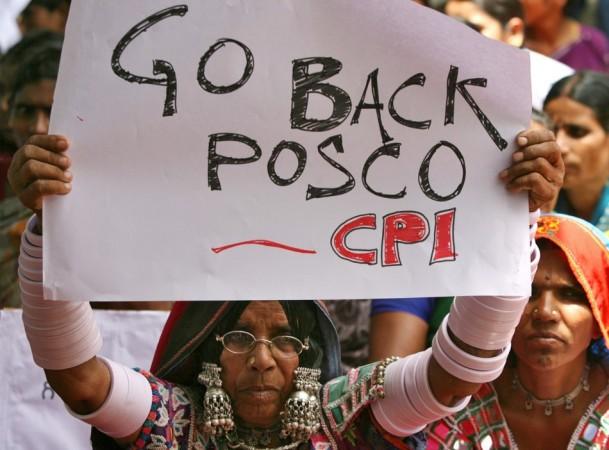
Hundreds of men and women of Odisha's Govindpur and Dhinkia villages clashed with police, in the wake of protests against the Posco steel project.
The villagers are locked in a bitter battle with the state government to stop acquisition of land for the Posco project. On Thursday, the fight escalated when a large group of women clashed with police and partially stripped to protest against the state administration acquiring land for the controversial project.
Several men and women from Dhinkia and Patana villages staged a rally near the Mangalapada police camp at the entry point of Gobindpur in Odisha around 2.30 pm, where some large trees like betel vines (source of income for the region's farmers) were being felled in the last four days, as part of the land acquisition process. They ended up clashing with the police who then resorted to lathi charge against the protesters, reported The Hindu.
The protests were further intensified by the death of three activists in a bomb explosion on 2 March. Agitators believe that the steel project supporters were behind the attack. As many as 20 people, mostly women, were injured in the clash between activists and cops.
The anti-Posco agitators belong to the Posco Pratirodh Sangram Samiti (PPSS), an organization that has led the campaign against land acquisition over the last eight years. The protesters demanded withdrawal of police forces from the region, failing which they threatened to bare it all together.
Posco is a South Korean company planning to set up a 12-million-tonne-per-annum steel plant near the town of Paradip in Odisha. The project is said to be the largest foreign investment in India. The government claimed that it has acquired about 2,000 acres of land in the region in 2011 and needs to acquire another 700 acres. Officials said that they have received consent for acquisition from the villagers, who in turn have strongly denied it.

















